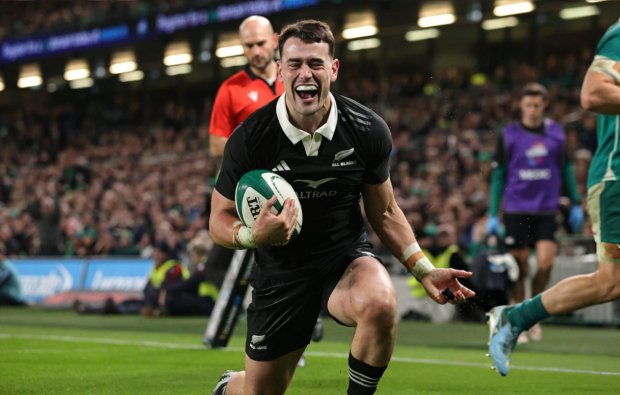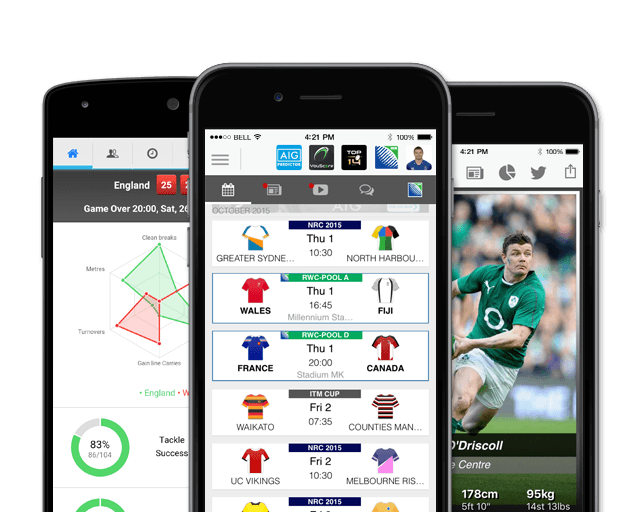How Red Bull have changed the sporting landscape
- 487

Jacques Burger and Schalk Burger each left indelible marks on PREM Rugby, but when all is said and done, it may be a near namesake who never played a minute of professional rugby who has the greatest long-term impact on the competition.
Gerhard Berger, the Austrian Formula 1 driver, was the first sportsperson to be sponsored by Red Bull, all the way back in 1989.
At the time, few could have predicted the way the energy drink would transform sports sponsorship, but in almost every sphere, their presence is felt.

What had previously been a relatively small association with rugby – perhaps most notable with their sponsorship of Jack Nowell and his iconic scrum cap – will take on a completely different look following the takeover of Newcastle Falcons.
The club from the north-east, winners of the very first Premiership Rugby title in 1997/98, look set to fulfil some of the area’s obvious potential with this new ownership, who have shown for nearly four decades how much sport means to them.
For many, Red Bull’s involvement in sport brings to mind two things – speed and adventure.
Their ties to F1 date back to Berger, but it was in the mid-2000s that they truly emerged. Red Bull Racing was born in 2005 with the purchase of the Jaguar team, with a second team – Toro Rosso, now known as Racing Bulls – bought a year later.
That in itself was a ground-breaking move and hints at Red Bull’s disruptive approach to sports investment. It is hard to know how that could work in a rugby context, but be prepared for innovation at every opportunity.
Two key hires made all the difference for Red Bull early on, as they appointed Christian Horner, the youngest team principal in F1 history and then Adrian Newey, the highly-accomplished McLaren technical director.

While the pair have both left Red Bull over the past 18 months, they oversaw a period of remarkable success, with eight drivers’ championships and six constructors’ titles in less than two decades.
Both Sebastian Vettel and Max Verstappen have claimed four consecutive drivers’ titles with Red Bull during two spells of complete domination.
Rugby is of course, a very different challenge, where a genius designer like Newey and the best car in the paddock cannot guarantee success.
Similarly, Red Bull’s foray into extreme sports, whether it is base jumping, cliff diving or even the Red Bull Soap Box Race, is not perhaps quite as instructive as to how things will translate in rugby.
For that, the most obvious parallels come in a sport that is beloved in Newcastle.
Around the same time that Red Bull launched their own F1 team, they also took over SV Austria Salzburg, renaming them FC Red Bull Salzburg.
MLS investment in the States quickly followed with the New York Red Bulls while RB Leipzig were born in 2009 after the takeover of a fifth division German club.
There have been more teams added to the Red Bull stable over the years, and one common theme across them is the unmistakable branding. We do not yet know exactly what Newcastle Red Bulls will look like, but expect some red and yellow to be very prominent.
In the UK, Ralf Rangnick is best known as one of the many people who tried to solve what ailed Manchester United without finding a solution.
His interim spell at Old Trafford was based in part on his innovation – he is regarded as the brainchild behind gegenpressing and modern German football that has given us the likes of Jurgen Klopp and Thomas Tuchel.
Rangnick served as director of football of both Red Bull Salzburg and RB Leipzig, with the teams enjoying remarkable success in the following years.
The Austrian side won 10 successive league titles between 2014 and 2023, while in Germany, RB Leipzig quickly worked their way up the divisions to reach the Bundesliga in 2016/17, finishing second in their very first season at that level.
By qualifying for the Champions League, RB Leipzig arguably hit a point even they had not expected so soon, but what they were doing clearly worked.
What has been interesting from all of the Red Bull teams are some of the common themes. While Red Bull bring huge financial power to the rugby universe, their approach in football has not necessarily relied on high-profile signings.
Instead, there has been a focus on building the academy and working the margins with savvy signings and big returns. New Manchester United signing Benjamin Sesko is the latest in a very long list of RB Leipzig sold to a Premier League side for more than double what they were bought for.
Rugby’s recruitment system does not allow for quite the same approach, but there is still scope for teams to build on the margins while prioritising their academy.
If Newcastle can keep hold of the future Guy Peppers or Ben Redshaws and combine them with smart signings – Freddie Clarke and Amanaki Mafi could prove to be instant contributors – then there will be some crossover with the approach of the football teams.
What is clear across the board, however, is that when Red Bull invest in sport, success almost inevitably follows.
After a tough few years for fans of the oval ball in the north-east, Red Bull might be about to give them wings.






